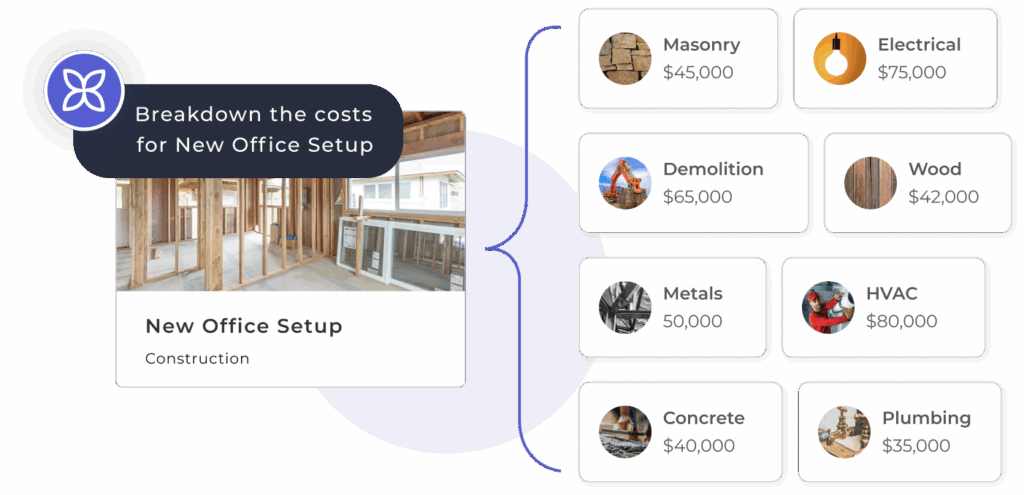Estate renovation project coordination represents a specialized discipline that requires sophisticated oversight of high-value property improvements while maintaining operational excellence. Furthermore, project managers, owner’s representatives, and family offices managing luxury renovations face unique challenges that extend beyond typical residential projects.
The complexity of renovation projects often creates significant stress for experienced professionals. Moreover, these projects involve multiple stakeholders with exacting standards, substantial budgets, and compressed timelines. Additionally, the transition from occupied residences to active construction sites requires careful planning to minimize disruption. However, modern platforms address these challenges through integrated approaches that streamline team management, budget oversight, and project documentation from planning through completion.
Team Assembly for Estate Renovation Project Coordination
Successful renovation projects begin with assembling exceptional professional teams that combine technical expertise with proven collaboration capabilities. Nevertheless, many project managers underestimate the complexity of managing diverse specialists.
Architect and Design Selection: Accordingly, effective team assembly requires evaluating candidates based on both technical capabilities and communication styles. In particular, focus on professionals with experience in similar project scopes and client expectations.
Contractor Vetting: Subsequently, comprehensive contractor evaluation must extend beyond basic licensing requirements. According to industry analysis, poor contractor performance accounts for 69% of project underperformance issues, highlighting the critical importance of thorough vetting processes. As a result, successful coordination requires detailed reference checks and compatibility evaluations.
Vendor Coordination: Meanwhile, luxury renovations involve numerous specialized vendors including custom millwork providers and luxury finishes specialists. Eventually, coordinating these relationships requires systematic scheduling and quality oversight.
Strategic Planning and Budget Management
Renovation projects demand comprehensive planning that addresses both immediate project requirements and long-term operational implications. However, many project managers focus primarily on construction logistics while overlooking broader estate management considerations.
Detailed Scope Definition: Initially, establish clear project parameters including technical specifications, quality standards, and timeline expectations. Subsequently, document these requirements in formats that facilitate ongoing reference and modification tracking.
Budget Development: Furthermore, luxury estate renovations require sophisticated budget management that accounts for premium materials and specialized labor. In addition, effective budget planning includes contingency allocations and cash flow projections.
Timeline Planning: Most importantly, develop realistic project schedules that account for custom fabrication timelines and permit approval processes. Effective renovation coordination shares many principles with comprehensive estate construction project management, requiring systematic scheduling approaches that prevent costly delays and ensure optimal resource utilization. Thus, integrated timeline management protects both project outcomes and client relationships.

Estate Renovation Project Coordination Technology Integration
Modern renovation projects require sophisticated digital platforms that centralize project information while facilitating seamless communication. Specifically, integrated systems address documentation requirements, progress tracking, and real-time collaboration needs.
Centralized Documentation: Therefore, implement platforms that organize blueprints, permits, contracts, and invoices in accessible formats. Likewise, comprehensive documentation supports both active project management and future property maintenance.
Progress Tracking: Simultaneously, digital platforms enable continuous project monitoring through photographic documentation and milestone tracking. Moreover, visual progress documentation provides owners with transparent project visibility.
Communication Tools: In addition, secure messaging systems facilitate efficient communication while maintaining complete interaction histories. Furthermore, integrated communication tools eliminate information gaps that cause delays.
Advanced Platform Capabilities:
- AI-powered scheduling optimization with automated conflict detection
- Integrated budget tracking with real-time expense monitoring and approval workflows
- Comprehensive vendor management with performance tracking and relationship documentation
- Seamless documentation systems supporting both project delivery and ongoing estate operations
Risk Management and Quality Oversight
Renovation projects require proactive risk management strategies that protect both project outcomes and long-term property values. Unfortunately, many project managers implement reactive approaches that address problems after they impact timelines and budgets.
Issue Identification: Consequently, establish systematic quality inspection protocols that identify potential problems before they require expensive corrections. Thus, regular quality assessments ensure work meets specifications while projects remain on schedule.
Change Management: Similarly, implement structured change order processes that evaluate scope modifications for timeline and budget implications. Meanwhile, clear change management procedures prevent scope creep while accommodating necessary adjustments.
Performance Monitoring: On the other hand, maintain detailed performance documentation for all contractors and vendors throughout project execution. As a result, comprehensive performance tracking supports both current management and future vendor selection.
Transition Planning and Operational Integration
The most critical aspect of renovation management involves planning seamless transitions from active construction to restored property operations. However, this transition frequently receives inadequate attention, creating operational challenges after project completion.
Pre-Completion Planning: Initially, develop comprehensive handover protocols that include system documentation, warranty information, and maintenance requirements. Subsequently, organized transition planning ensures property managers receive complete operational guidance.
Quality Assurance: Furthermore, implement systematic final inspection procedures that verify all work meets specified quality standards before project acceptance. In particular, detailed quality verification protects both immediate satisfaction and long-term property value.
Maintenance Integration: Finally, connect renovation documentation with predictive maintenance schedules that protect investment value over time. Accordingly, integrated maintenance planning ensures renovation benefits continue after project completion.
Transform your renovation project management approach through comprehensive platforms that deliver exceptional outcomes while protecting long-term property values.
Discover how EstateSpace’s integrated platform streamlines estate renovation project coordination and ensures superior results through professional project management excellence.
Summary: Estate renovation project coordination success depends on strategic team assembly, comprehensive planning, integrated technology platforms, and seamless transition management that protects both project outcomes and long-term property value.



